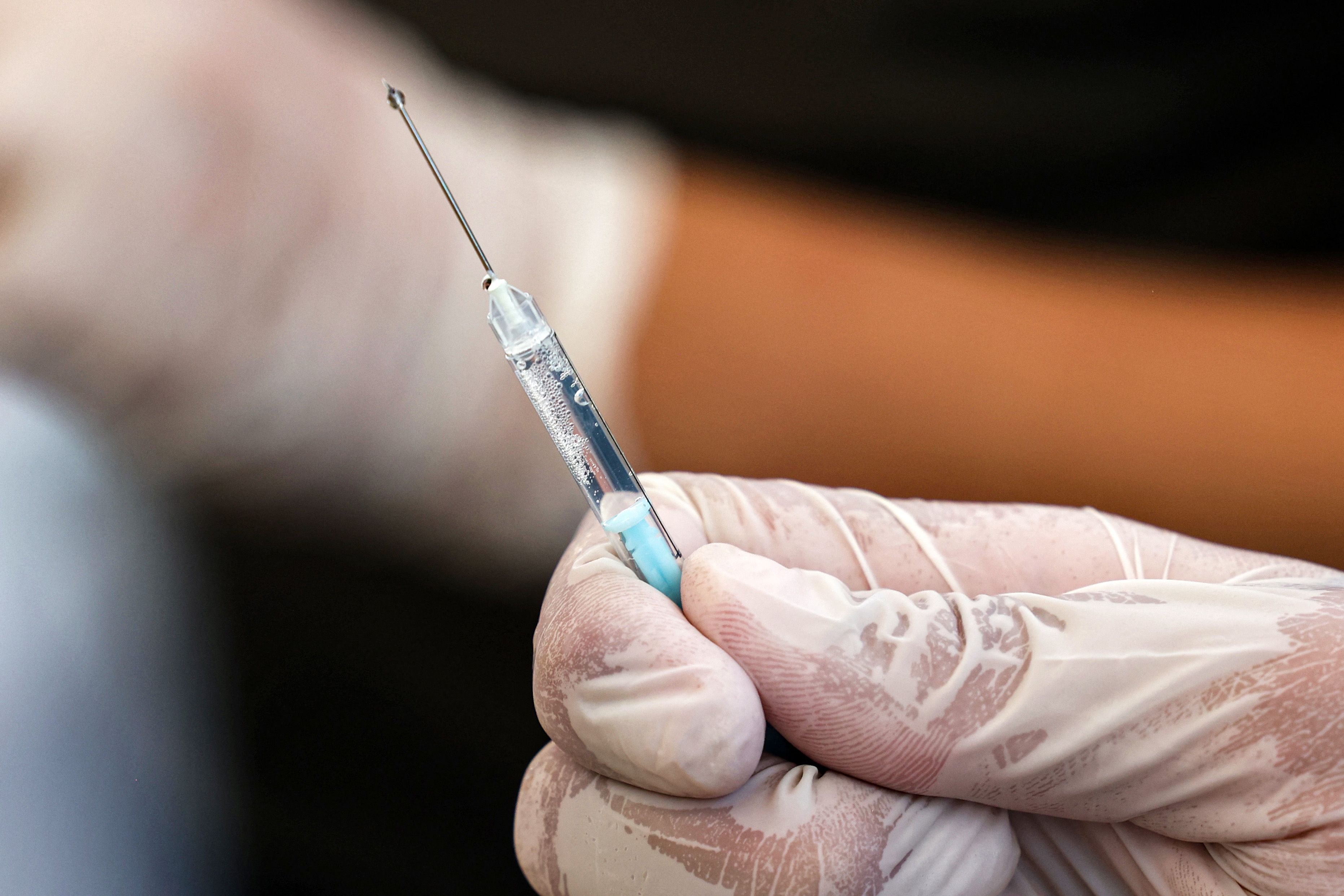News analysis
China to approve mRNA Covid-19 vaccine soon
Sign up now: Get insights on Asia's fast-moving developments

Most of the Chinese-developed vaccines, which are on an inactivated virus, have lower published efficacy rates than the others developed overseas.
PHOTO: AFP
BEIJING - China's drug regulator is set to give the green light for the first foreign-made mRNA vaccine.
Shanghai-based Fosun Pharma said the National Medical Products Administration (NMPA) recently completed an expert panel review of an mRNA Covid-19 vaccine co-developed between the company and German firm BioNTech.
Named BNT162b2, the vaccine is internationally known as the Pfizer-BioNTech vaccine, or by its brand name, Comirnaty, which is being administered in many countries around the world, including Singapore. In China, it is referred to as the Fosun-BioNTech vaccine.
Last week, Fosun said BNT162b2 was now undergoing an administrative review, and company chairman Wu Yifang told a shareholders meeting that the drugmaker was targeting to start domestic trial production by the end of August.
Caixin news magazine, citing sources close to the NMPA, said regulators were looking at administering BNT162b2 to those who have been fully vaccinated as a booster. It is unclear who will be given priority for the booster shots.
Most of the Chinese-developed vaccines, which are on an inactivated virus, have lower published efficacy rates than the others developed overseas, including Pfizer-BioNTech and AstraZeneca.
Meanwhile, the National Health Commission (NHC) in its daily update said that as at Tuesday, 1.4 billion doses of Covid-19 vaccines had been administered in China.
But as the nationwide vaccination programme continues with four domestically produced jabs, the top health authority has found itself having to repeatedly rein in local officials who have arbitrarily enacted rules to get residents vaccinated, contradicting central policy that states that they should be voluntary.
The rules included barring children of unvaccinated individuals from going to school and denying public and medical services to those who had not received their shots.
"Those who are not yet inoculated should hurry and get jabbed to avoid affecting your child's return to school," said a notice in western Guangxi province.
Similar pronouncements surfaced in Jiangxi and Henan, while Hancheng in central Shaanxi province said unvaccinated people could not enter restaurants or entertainment venues.
This was the second time this year that the central government has had to rein in local authorities.
Earlier this year, a township in the southern province of Hainan similarly tried to implement compulsory vaccination, barring those who had not done so from taking public transport and entering restaurants.
The policy was later reversed, with the government apologising.
The incidents highlight the challenge China faces in trying to reach herd immunity while ensuring that a relatively new vaccine is not simply imposed on the population.
It is also indicative of the difficulties in implementing national policies at a local level.
This is especially when officials' performance evaluations are tied to barometers such as vaccination rates and even efficiency in controlling the virus outbreak, said Assistant Professor Gao Jie at the National University of Singapore's Department of Political Science, who researches local governments in China.
For instance, several senior officials in Beijing and Yunnan were replaced after a resurgence of Covid-19 cases late last year and earlier this year.
"In the actual implementation process, local officials need to strike a balance between what the upper levels expect and what they can deliver with the resources at their disposal," Prof Gao told The Straits Times.
"Sometimes, the manner in which grassroots-level officials implement the policies paradoxically undermines the national goal."


